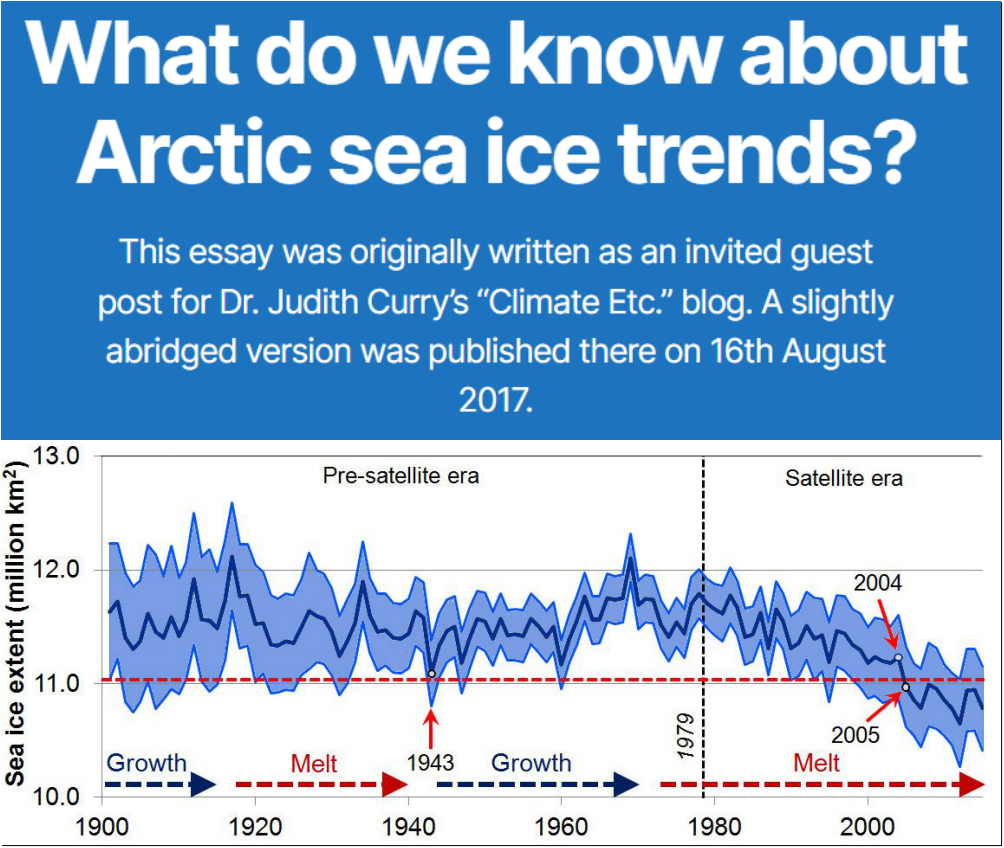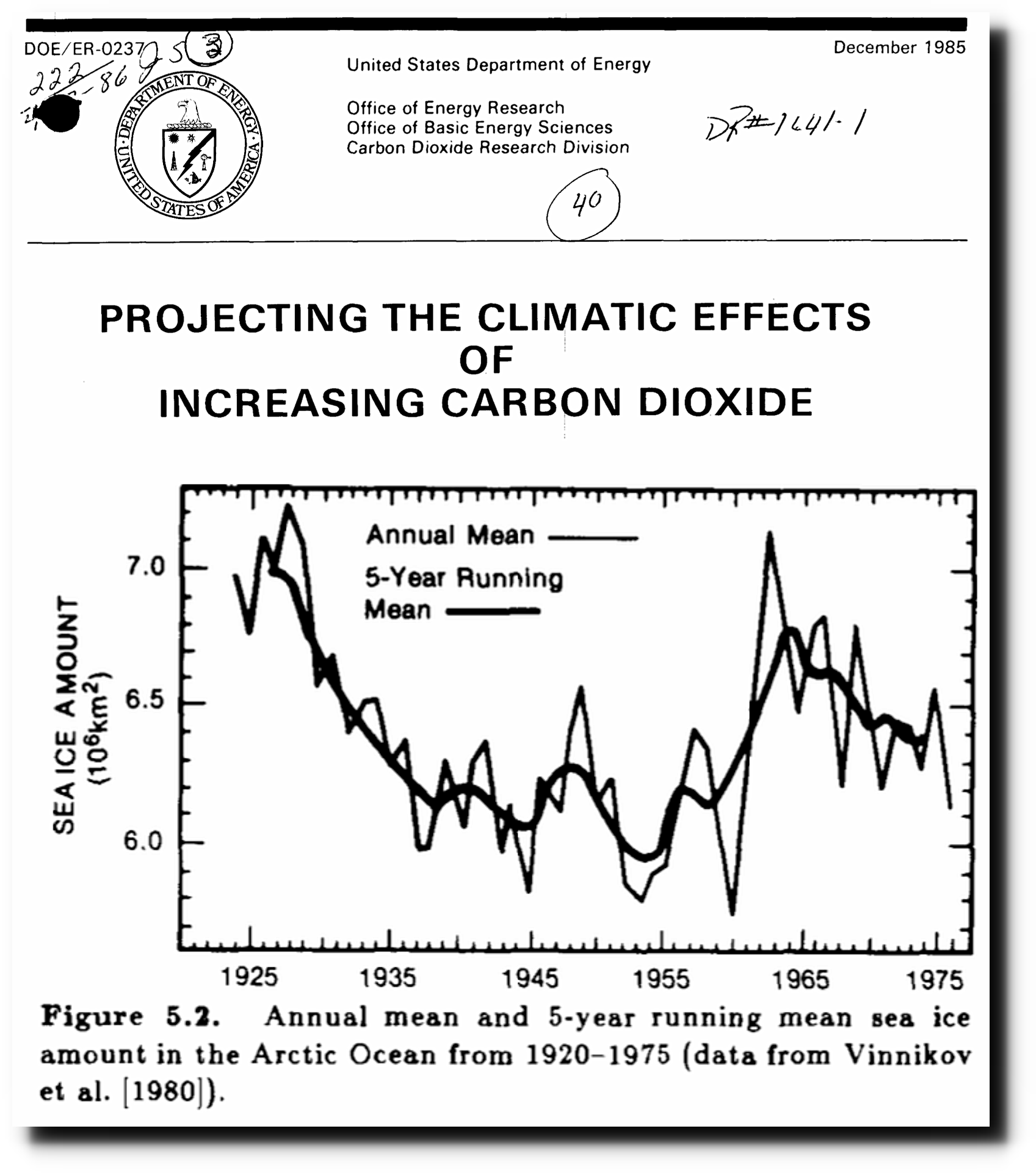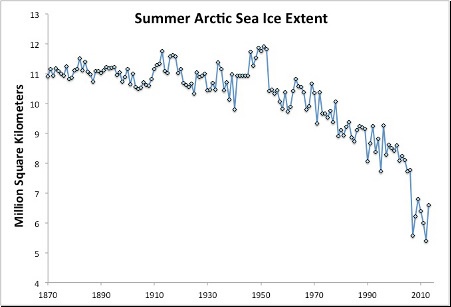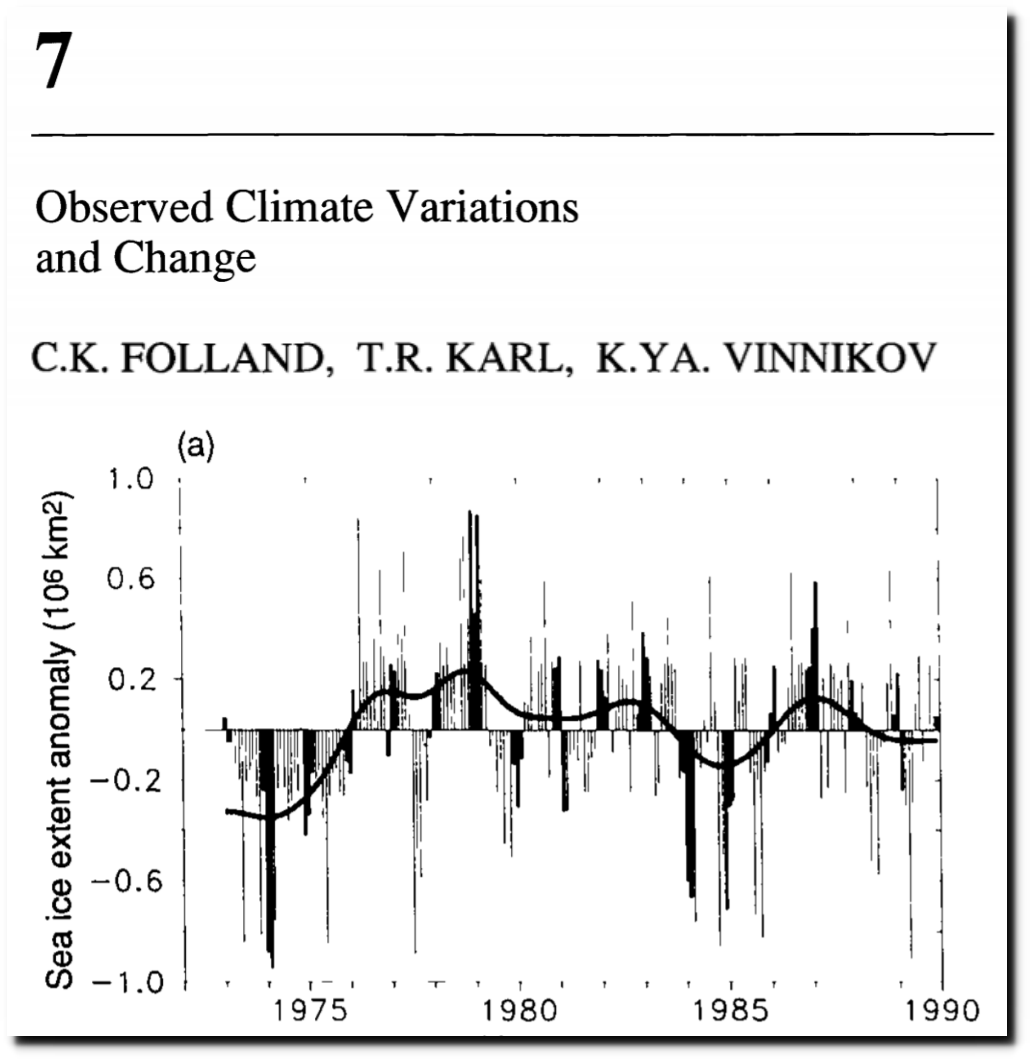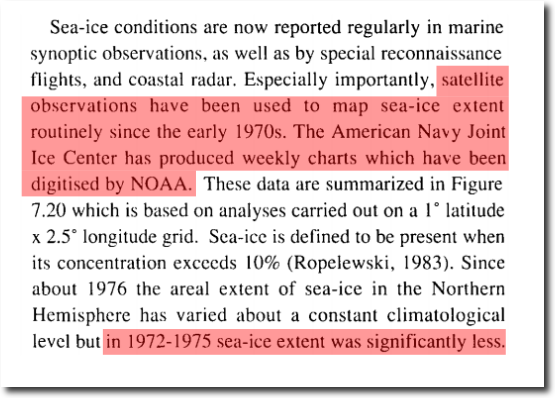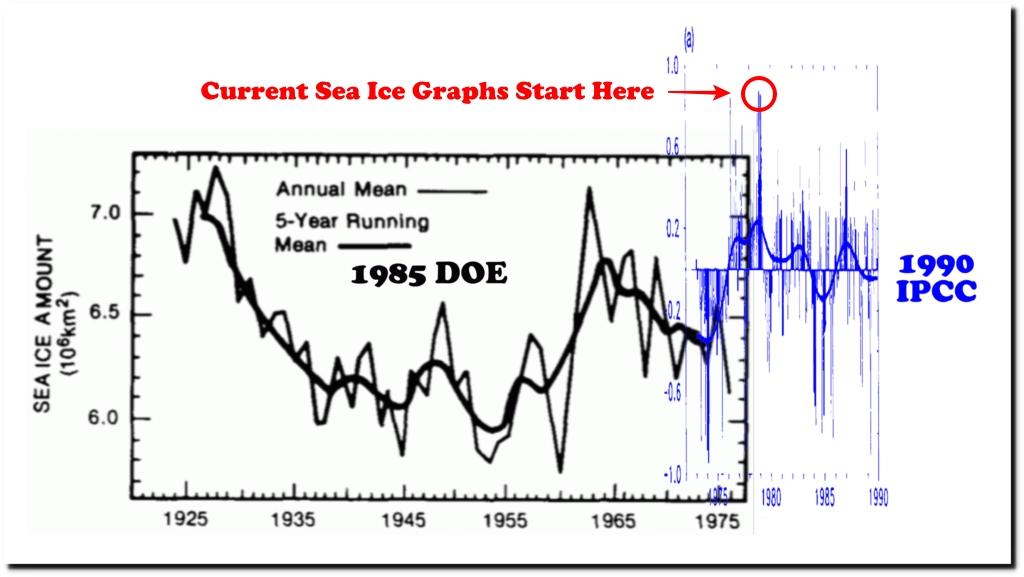Arctic ice loss prior to the 1950s has been erased.
What do we know about Arctic sea ice trends? – Global Warming Solved
“Lansing State Journal
10 Mar 1955, Thu – Page 39Ice Melts In Arctic
Earth Becoming Warmer, Says Explorer; Oceans May Rise 100 Feet
BOSTON, March 10 (INS)—A famed Arctic explorer reported to- day the world is getting warmer— but ‘that’s not an unmixed blessing.
Adm. Donald MacMillan, an 80- year-old veteran of 30 trips to the Arctic, said the huge areas of ice in the far north are melting, bringing warmer weather. But he added that the process may also bring a flooding threat to some parts of eastern seaboard cities.
MacMillan explained in an exclusive interview:
“There are now six million square miles of ice in the Arctic. There once were 12,000,000 square miles. ‘“Another thing, almost every glacier, with one exception, has retreated—going back into the hills— is smaller than it was.”
 10 Mar 1955, Page 39 – Lansing State Journal at Newspapers.com
10 Mar 1955, Page 39 – Lansing State Journal at Newspapers.com
The 1985 DOE Report showed that Arctic sea ice declined until the century low in the mid-1950s, and then started to increase again.
Projecting the climatic effects of increasing carbon dioxide
The gain in ice during the 1960s and 1970s has also been erased.
Arctic sea ice “recovers” to its 6th-lowest extent in millennia
This chart combines the 1985 and 1990 graphs, and shows that government agencies now start their sea ice graphs in 1979 at the century maximum.

